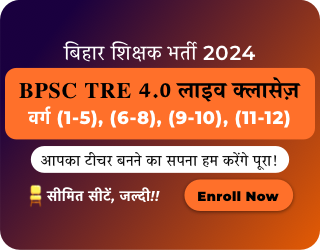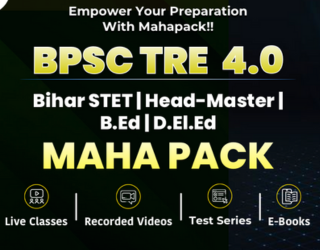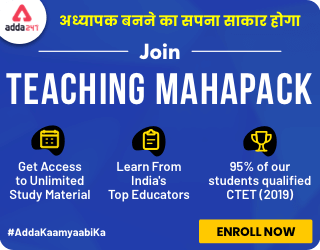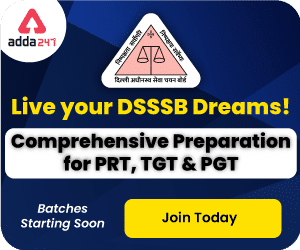The UPTET Syllabus for Papers 1 and 2 is now available on the official website of the UP Education Service Selection Commission (UPESSC). To prepare effectively for the UPTET Exam 2024, candidates should carefully review the syllabus.
The exam has two papers: Paper I is for those who want to teach Classes I-V, while Paper II is for those interested in teaching Classes VI-VIII. This article gives a detailed overview of the UPTET syllabus, exam pattern, and other important information for candidates.
UPTET Syllabus 2024
In order to thoroughly understand the subjects and topics that require preparation, it is important to review the detailed and updated UPTET Syllabus for Paper-1 and 2. The official notification and exam dates for the Uttar Pradesh Teacher Eligibility Test (UPTET) 2024 will soon be released on its official website.
Uttar Pradesh Teacher Eligibility Test Syllabus
The Uttar Pradesh Teacher Eligibility Test (UPTET) is a state-level examination organized by the Uttar Pradesh Basic Education Board (UPBEB). The UPTET Notification 2024 will soon be published on the official website by UPBEB. To successfully navigate the exam, it is crucial to stay informed about the UPTET syllabus PDF and exam pattern. Understanding the UPTET Syllabus & Exam Pattern allows candidates to discern the importance of each section, aiding them in formulating effective exam strategies.
UPTET Exam Pattern 2024
The UPTET examination comprises two papers: Paper 1 and Paper 2, each with a duration of 2 hours and 30 minutes. The UPTET 2024 is an offline pen-paper-based test, totaling 150 marks, with 150 multiple-choice questions, each worth 1 mark, and no negative marking. The sectional distribution for each paper is outlined in the table below.
UPTET Paper 1 Exam Pattern
UPTET Paper 1 consists of five sections i.e Child Development and Methodology and Pedagogy, Language 1, Language 2, Mathematics & Environmental Studies. Each section carries 30 Marks.
| Sections |
Number of Questions |
Total Marks |
Duration |
| Child Development and Methodology and Pedagogy |
30 |
30 |
2 hours 30 minutes |
| Language 1 (Hindi) |
30 |
30 |
| 2nd Language (Anyone from English, Urdu & Sanskrit) |
30 |
30 |
| Mathematics |
30 |
30 |
| Environmental Studies |
30 |
30 |
| Total |
150 |
150 |
|
UPTET Paper 2 Exam Pattern
UPTET Paper 2 consists of five sections i.e Child Development and Methodology and Pedagogy, Language 1,Language 2, Mathematics & Science or (Social Studies).
| Sections |
Number of Questions |
Total Marks |
Duration |
| Child Development and Methodology and Pedagogy(Compulsory) |
30 |
30 |
2 hour 30 minutes |
| 1st Language (Hindi) |
30 |
30 |
| 2nd Language (Anyone from English, Urdu & Sanskrit) |
30 |
30 |
A. Mathematics & Science
OR
B. Social Studies |
60 |
60 |
| Total |
150 |
150 |
|
UPTET Paper 1 Syllabus
- UPTET Syllabus for Paper I comprises five sections including Child Development, Learning & Pedagogy, Language 1 (Hindi), Language 2 (English), Mathematics & EVS.
- UPTET Syllabus 2024 is based on the topics given in NCERT Books of class I-V.
- The Subject-wise paper has been given below
UPTET Child Development and Pedagogy Syllabus
The child development and pedagogy section comprises 30 questions for 30 marks. Each correct response carries 1 mark. It will focus on the Child Pedagogy, meaning and principles of learning teaching and learning methods, Inclusive education- guidance and counseling and Learning and teaching. The students can score well in this section if they will study each topic extensively.
| Topic |
Sub – Topic |
| Child development |
- Meaning, necessity and scope of child development, stages of child development, physical development, mental development, emotional development, language development – development of expressive ability, creativity and development of creative ability.
- Basis of child development and factors influencing them – inheritance, environment (Family, social, school, communication medium)
|
| Meaning and principles of learning |
- Meaning of learning, its affecting factors, Influential methods of learning
- Rules of learning – The main rules of learning of Thorndike’s and their importance in learning
- The key principles of learning and their practical utility in classroom teaching, Principle of Thorndike’s attempt and error, Pavlov’s relation theory of feedback, Skinner’s action learning theory, Kohler’s theory of understanding or Insight, Vygotsky’s Theory of Learning Curve – Meaning and Type, Meaning of plateau in the cause and solution.
|
| Teaching and learning methods |
- Meaning and purpose of teaching, communication,
- principles of teaching,
- sources of teaching,
- teaching methods, new methods of teaching (approach),
- basic teaching, and basic skills of teaching.
|
| Inclusive education- guidance and counseling |
- Educational inclusion means identity, type, resolution, eg: excluded class, language, religion, caste, region, colour, gender, physical skills (visually impaired, hearing impaired and speech/bone impaired), mental efficiency
- Equipment, materials, methods, TLM, and observations required for inclusion
- Necessary tools and techniques for testing the learning of inclusive children
- Special teaching methods for including children. Such as – Braille script etc
- Guidance and Counseling for Inclusive Children – Meaning, Purpose, Type, Methods, Requirements, and Area
- Departments / Institutions supporting in consultation: –
- Psychology Uttar Pradesh, Allahabad
- Divisional Psychology Centre (at Divisional Level)
- District hospital
- Trained Diet Mentor in District Education and Training Institute
- Supervision and inspection system
- Community and school support committees
- Government and NGOs
- Importance of guidance and counselling in child learning
|
| Learning and teaching |
- How children think and learn; how and why children ‘fail’ to achieve success in school performance.
- Basic processes of learning and teaching, learning strategies of children, learning as a social activity, social context of learning.
- Children as problem solvers and scientific investigators.
- An alternative concept of learning in children, understanding child errors as important steps in the learning process
- Sense and feelings
- Motivation and learning
- Factors contributing to learning – private and environmental.
|
UPTET Hindi Syllabus Language 1
Language 1 emphasizes proficiencies linked to the medium of instruction. While this section offers scoring opportunities, it necessitates thorough preparation. With 30 questions totaling 30 marks, each question carries a weight of 1 mark. The difficulty level corresponds to Class I-V standards. Language 1 delves into both the content and pedagogy of the subject matter.
| Topic |
Sub – Topic |
| Hindi (subject matter) |
- अपठित अनुच्छेद
- हिंदी वर्णमाला (स्वर, व्यंजन)
- वर्णों के मेल से मात्रिक तथा अमात्रिक शब्दों की पहचान
- वाक्य रचना
- हिंदी की सभी ध्वनियों के पारस्परिक अंतर की जानकारी विशेष रूप से – ष, स, ब, व, ढ, ड, क्ष, छ, ण तथा न की ध्वनियाँ
- हिंदी भाषा की सभी ध्वनियों, वर्णों अनुस्वार एव चन्द्रबिंदु में अंतर
- संयुक्ताक्षर एवं अनुनासिक ध्वनियों के प्रयोग से बने शब्द
- सभी प्रकार की मात्राएँ
- विराम चिह्नों यथा – अल्प विराम, अर्द्धविराम, पूर्णविराम, प्रश्नवाचक, विस्मयबोधक, चिह्नों का प्रयोग
- विलोम, समानार्थी, तुकान्त, अतुकान्त, सामान, ध्वनियों वाले शब्द
- वचन, लिंग एव काल
- प्रत्यय, उपसर्ग, तत्सम तद्भव व देशज, शब्दों की पहचान एव उनमें अंतर
- लोकोक्तियाँ एव मुहावरों के अर्थ
- सन्धि – (1) स्वर सन्धि – दीर्घ सन्धि, गुण सन्धि, वृद्धि सन्धि, यण सन्धि, अयादि सन्धि (2) व्यंजन सन्धि (3) विसर्ग सन्धि
- वाच्य, समान एव अंलकार के भेद
- कवियों एव लेखकों की रचनाएँ
|
| Hindi Pedagogy |
- अधिगम और अर्जन
- भाषा अध्यापन के सिद्धांत
- सुनने और बोलने की भूमिका: भाषा का कार्य तथा बालक इसे किस प्रकार एक उपकरण के रूप में प्रयोग करते है
- मौखिक और लिखित रूप में विचारों के संप्रेषण के लिए किसी भाषा के अधिगम में व्याकरण की भूमिका पर निर्णायक संदर्श
- एक भिंन कक्षा में भाषा पढाने की चुनौतियाँ भाषा की कठिनाइयाँ त्रुटिया और विकार
- भाषा कौशल
- भाषा बोधगम्यता और प्रवीणता का मुल्यांकन करना: बोलना, सुनना, पढना, लिखना
- अध्यापन – अधिगम सामग्रियां: पाठ्यपुस्तक, मल्टी मीडिया सामग्री, कक्षा का बहुभाषायी संसाधन
- उपचारात्मक अध्यापन
|
UPTET Sanskrit, English, Urdu Syllabus
Language 2 is also based on basic concepts as Language 1. Language 2 will focus on the elements of language and comprehension abilities. It consists of 30 questions for 30 marks and each question carries 1 mark. This section contain difficulty level of Class I- V. Language 1 contains content and pedagogy of subject.
| Topic |
Sub – Topic |
| English |
- Unseen Passage
- The sentence
- (A) Subject and predicate
- (B) Kind of sentences
- Parts of speech- Kinds of Noun, Pronoun, Adverb, Adjective, Verb, Preposition, Conjunction
- Tenses-Present, Past, Future
- Articles
- Punctuation
- Word formation
- Active & Passive voice
- Singular & Plural
- Gender
|
| Urdu |
- Unseen passage
- Meeting of the masters of the tongue
- Knowledge of the famous life and poetry of famous tribes and poets
- MukhtalifAsnaafAdab such as Maznoom, Afsana Murcia, Masnavi Dastan, etc. Praise to Ma, Amsal
- Masala of perfect tamarind and afflux
- Information about Ism, Jamir, Sifat, Mutzadalfaz, Wahid, Mojkkar, Moannas et cetera.
- Saints (Tasbeeh and Istaara, Talmih, Maraatunzir), etc
- Idioms, meeting JurbalAmsal
- MukhtalifSamajMusayal like atmosphere of AloodgiNabrabari, TalimBaraa’mn, Adame, Tagazia
- To understand the social and Khaliq Akbar present in the beliefs, stories, Hikayatas, and memoirs
|
| Sanskrit |
- Unexplained masculine
- Unseen passage
- Nouns
- Unexplained feminine
- Unexplained neuter
- Postpartum feminine
- Post masculine
- Postpartum masculine
- Postpartum feminine
- Introduction to Sanskrit names of household, family, surroundings, animals, birds, household use items
- Pronouns
- Verb
- Use of Sanskrit words for major body parts
- Incessant
- Sandhi – Treaty of simple words and their separation (long treaty)
- Numbers – Knowledge of numbers in Sanskrit
- Gender, vowel, vowel type, substitution, type of consonant, anusvara, and nasal consonant
- Compositions of poets and writers
|
| Teaching of language development: – |
- Learning and acquisition
- Principles of language teaching
- Role of listening and speaking: Language work and how children use it as a tool
- Decisive perspective on the role of the grammar of learning of a language for communicating ideas verbally and in writing
- Challenges of teaching language in a different classroom: language difficulties, errors, and disorders
- Language skills
- Assessing language comprehension and proficiency: speaking, listening, reading and writing
- Teaching-learning materials: syllabus, multi-material, classroom multilingual resources
- Remedial teaching
|
UPTET Mathematics Syllabus
The mathematics syllabus is lengthy in nature but the level of questions asked in the exam is moderate and framed from the NCERT books of Class 1st to 5th. It consists of 30 questions for 30 marks. Questions will be based on the topics prescribed in the syllabus i.e. content and pedagogy.
| Topic |
Sub – Topic |
| Content: – |
- Addition, subtraction, property, division of numbers, and numbers
- Minimum Commonwealth and Maximum Commonwealth
- Addition, subtraction, property, division of fractions
- Decimal – addition, subtraction, property, division
- Unitary rule
- Percent
- Profit loss
- Simple interest
- Geometry – Geometric shapes and pages, angles, triangles, circles
- Money (money – money)
- Measurement – time, weight, capacity, length, and temperature
- Perimeter – Triangle, import, square, quadrilateral
- Calendar
- Figures
- Volume, held – cube, cavity
- Area – Rectangle, Square
- Railway or bus timetable
- Presentation and formulation of data
|
| Teaching Issues |
- Understanding the nature of mathematical/logical thinking, the child’s thinking and reasoning patterns, and the meaning and learning strategies
- Place of mathematics in the curriculum
- Math language
- Community mathematics
- Evaluation through formal and informal methods
- Teaching problems
- Relevant aspects of error analysis and learning and teaching
- Clinical and remedial teaching
|
UPTET Environment (EVS) Syllabus
The Environment Studies (EVS) section is notably rewarding in terms of scoring potential. With 30 questions totaling 30 marks, this section evaluates students’ problem-solving skills and pedagogical comprehension. The EVS syllabus encompasses both content and pedagogy relevant to teaching the subject.
| Topic |
Sub – Topic |
| Content |
- Family
- Food, health, and hygiene
- Accommodation
- Trees and plants
- Our environment
- Fair
- Individuals and businesses associated with the local profession
- Water
- Traffic and communication
- Sports and sportsmanship
- India – rivers, plateaus, forests, traffic, continents, and oceans
- Our region – rivers, mountains, stones, forests, traffic
- Constitution
- Governance system – local self-government, village-panchayat, Nagar-panchayat, district panchayat, municipality, municipal corporation, district-administration, state’s governance, administrative, judiciary, executive, national and national-symbols, voting, national Unity.
- Environment-need, environment-protection- need, importance, and utility, environment protection, social responsibility towards the environment, schemes operated for environmental protection
|
| Teaching related issues |
- Concept and coverage of environmental studies
- Importance of environmental studies, integrated environmental studies
- Environmental Studies and environmental education
- Learning principle
- The scope and relation of science and social science
- Approach to present retention
- Activity
- Experiment / practical work
- Discussion.
- Continuous comprehensive evaluation
- Teaching material/equipment
- Problems
|
UPTET Paper 2 Syllabus
- UPTET Paper II Syllabus comprises five sections including Child Development, Learning & Pedagogy, Language 1 (Hindi), Language 2 (English), Mathematics & Science, or Social Studies.
- The standard of questions in UPTET paper II is according to the topics mentioned by NCERT in books of class VI-VIII.
- The subject wise syllabus has been given below :
UPTET Child Development and Pedagogy Syllabus
The syllabus for Child Development and Pedagogy corresponds to the difficulty level of Class 6-8, presenting a highly conceptual and theoretical subject matter. It assesses candidates’ depth of understanding of key concepts. Success in this section hinges on thorough study of each topic, facilitating strong performance. This segment comprises 30 questions, with each correct answer earning candidates 1 mark.
| Topic |
Sub – Topic |
| Child Development |
- The meaning, necessity, and scope of child development, stages of child development, physical development, mental development, emotional development, language development – development of expressive ability, creativity, and development of the creative ability
- Basis of child development and factors influencing them – inheritance, environment (Family, social, school, communication medium)
|
| Meaning and principles of learning:- |
- Effective methods of learning, influencing the meaning of learning (learning)
- Rules of learning – The main rules of learning of the Thorndike and their importance in learning
- The key principles of learning and their practical utility in classroom teaching, Thorndike’s attempt and theory and their practical utility in classroom teaching, Thorndike’s theory of love and error, Pavlov’s relation theory of response, Skinner’s introduced learning theory, Kohler’s curve – Meaning and type, plateau meaning in learning and cause and resolution.
|
| Teaching and learning disciplines:- |
- Meaning and purpose of teaching, communication, principles of teaching,
- sources of teaching,
- teaching methods, new methods of learning (approach),
- basic teaching, and basic skills of teaching.
|
| Inclusive education guidance and counselling: – |
- Educational inclusion means identity, type, resolution, eg: excluded class, language, religion, caste, region, color, gender, physical skills (visually impaired, hearing impaired and speech/bone impaired), mental efficiency.
- Equipment, materials, methods, TLM, and observations required for inclusion
- Necessary tools and techniques for testing the learning of inclusive children
- Special teaching methods for including children. Such as Braille script etc
- Guidance and counseling for inclusive children – Meaning, purpose, types, methods, requirements, and fields
- Departments / Institutions supporting in consultation: –
- Psychology Uttar Pradesh, Allahabad
- Divisional Psychology Center (at Divisional Level)
- District hospital
- Trained Diet Mentor in District Education and Training Institute
- Supervision and inspection system
- Community and school support committees
- Government and NGOs
- Importance of guidance and counselling in child learning
|
| (B) Study and teaching:- |
- How children think and learn; how and why children ‘fail’ to achieve success in school performance
- Basic processes of teaching and learning, children’s learning strategies, learning as a social activity, social context of learning
- Child as a problem solver and a ‘scientific investigator’
- An alternative concept of learning in children, understanding child errors as important stages in the learning process
- Perception and sensations
- Motivation and learning
- Tax contributors to learning – private and environmental
|
UPTET Hindi Syllabus Language -1
Language 1 will mainly focus on proficiencies related to the medium of instruction. This section is also scoring but it demands proper preparation. The language basically depends upon the level of understanding of the Language. This section consists of 30 questions with 1 mark each.
| Topic |
Sub – Topic |
| Hindi (subject matter) |
- अपठित अनुच्छेद
- हिंदी वर्णमाला (स्वर, व्यंजन)
- वर्णों के मेल से मात्रिक तथा अमात्रिक शब्दों की पहचान
- वाक्य रचना
- हिंदी की सभी ध्वनियों के पारस्परिक अंतर की जानकारी विशेष रूप से – ष, स, ब, व, ढ, ड, क्ष, छ, ण तथा न की ध्वनियाँ
- हिंदी भाषा की सभी ध्वनियों, वर्णों अनुस्वार एव चन्द्रबिंदु में अंतर
- संयुक्ताक्षर एवं अनुनासिक ध्वनियों के प्रयोग से बने शब्द
- सभी प्रकार की मात्राएँ
- विराम चिह्नों यथा – अल्प विराम, अर्द्धविराम, पूर्णविराम, प्रश्नवाचक, विस्मयबोधक, चिह्नों का प्रयोग
- विलोम, समानार्थी, तुकान्त, अतुकान्त, सामान, ध्वनियों वाले शब्द
- वचन, लिंग एव काल
- प्रत्यय, उपसर्ग, तत्सम तद्भव व देशज, शब्दों की पहचान एव उनमें अंतर
- लोकोक्तियाँ एव मुहावरों के अर्थ
- सन्धि – (1) स्वर सन्धि – दीर्घ सन्धि, गुण सन्धि, वृद्धि सन्धि, यण सन्धि, अयादि सन्धि (2) व्यंजन सन्धि (3) विसर्ग सन्धि
- वाच्य, समान एव अंलकार के भेद
- कवियों एव लेखकों की रचनाएँ
|
| Hindi Pedagogy |
- अधिगम और अर्जन
- भाषा अध्यापन के सिद्धांत
- सुनने और बोलने की भूमिका: भाषा का कार्य तथा बालक इसे किस प्रकार एक उपकरण के रूप में प्रयोग करते है
- मौखिक और लिखित रूप में विचारों के संप्रेषण के लिए किसी भाषा के अधिगम में व्याकरण की भूमिका पर निर्णायक संदर्श
- एक भिंन कक्षा में भाषा पढाने की चुनौतियाँ भाषा की कठिनाइयाँ त्रुटिया और विकार
- भाषा कौशल
- भाषा बोधगम्यता और प्रवीणता का मुल्यांकन करना: बोलना, सुनना, पढना, लिखना
- अध्यापन – अधिगम सामग्रियां: पाठ्यपुस्तक, मल्टी मीडिया सामग्री, कक्षा का बहुभाषायी संसाधन
- उपचारात्मक अध्यापन
|
UPTET English/ Urdu/ Sanskrit Syllabus Language
Language 2 is also based on basic concepts as Language 1. Language 2 will focus on the elements of language and comprehension abilities. Here we have listed all the important topics of Language II.
| Topic |
Sub – Topic |
| English Content:- |
- Unseen passage
- Nouns and their kinds
- Pronoun and its kinds
- Verb and its kinds
- Adjective and its kinds & degrees
- Adverbs and their kinds
- A preposition and its kinds
- Conjunction and its kinds
- Intersection
- Singular and plural
- Subject and predicate
- Negative and interrogative sentences
- Masculine and feminine gender
- Punctuation
- Suffix with root words
- Phrasal verbs
- Use of Somebody, Nobody, Anybody
- Parts of speech
- Narration
- Active voice and passive voice
- Antonyms & synonyms
- Use of Homophones
- Use of request in sentences
- Silent letters in words
|
| Urdu
|
- Unseen passage
- Knowledge of language masters of the tongue.
- Understanding of MukhtalifAsnaafAdabHamd, Ghazal, Qasida, Marcia, Masnavi, Geet, etc. and their difference
- To get information about the situation of the poets and their well-being by the life of the many poets and the lovers
- Achieving eloquence with the help and importance of Urdu language in Mushtaraka Tehzeeb of the country
- Ism and its Aksam, Fail, Sifat, Jamir, Tazkiron Tanias, Tzad’s deemed
- Information about correct tamarind and Arab
- Idioms, acquiring speech from JurbalAmsal
- Knowledge of saints
- The political, social, and ekhalaki mainsail’s being beseeched and keep their attitude on it
|
| Sanskrit
|
- Unseen Passage
- Sandhi – Vowels, consonants
- Incessant
- Compound
- Use of gender, speech, and time
- Prefix
- Synonym
- Antonyms
- Factor
- Ornamentation
- Suffix
- Speech
- Nouns – Knowledge of the forms of all the inflections and words of the following words – The word masculine, The word feminine, The word neuter, Inexplicable masculine, Inexplicable feminine, Inexplicable neuter, Postpartum masculine, Postpartum feminine, Postpartum neuter, Ecomant feminine, Ecomant masculine, Ecomant neuter, Rakaranta masculine
- Pronouns
- Adjectives
- Metal
- Numbers
|
| (B) Teaching of language development: – |
- Learning and acquisition
- Principles of language teaching
- Role of listening and speaking: Language work and how children use it as a tool
- Decisive perspective on the role of the grammar of learning of a language for communicating ideas verbally and in writing
- Challenges of teaching language in a different classroom: language difficulties, errors, and disorders
- Language skills
- Assessing language comprehension and proficiency: speaking, listening, reading and writing
- Teaching-learning materials: syllabus, multi-material, classroom multilingual resources
- Remedial teaching
|
UPTET Mathematics Syllabus for Paper II
The mathematics syllabus is extensive and challenging, yet the exam’s question difficulty level typically ranges from easy to moderate. Questions are sourced from NCERT Class 6th to 8th and are centered around both mathematical concepts and their teaching pedagogy.
| Topic |
Sub – Topic |
| (A) Contents:- |
- Natural numbers, whole numbers, rational numbers
- Integer, parenthesis, least common multiple, and greatest common factor.
- Square root
- Cube root
- Identities
- Algebra, Concept – variables, constant numbers, powers of variable numbers
- Addition, subtraction, multiplication, and division of algebraic expressions, coefficients of terms and terms of algebraic expressions, homogeneous and non-homogeneous terms, degrees of expressions, the concept of one, two, and tripartite expressions
- Simultaneous Equations, Square Equations, Linear Equations
- Parallel lines, quadrilateral compositions, triangles
- Circle and cyclic quadrilateral
- Tangent lines to the circle
- Commercial Mathematics – Ratio, Proportion, Percentage, Profit and Loss, Simple Interest, Compound Interest, Tax, Barter System
- Banking – Current Currency, Bills and Cashmemo
- Statistics – Classification of data, pictograph, mean, median and polymer, frequency
- Pie and bar chart, picture of unclassified data
- Probability (probability) graph, bar diagram, and mixed bar diagram
- Cartesian floor
- Mensuration
- Exponential
|
| (B) Teaching related issues:- |
- Nature of mathematical/logical thinking
- Place of mathematics in the curriculum
- Math language
- Community mathematics
- Evaluation
- Remedial teaching
- Teaching problems
|
UPTET Science Syllabus for Paper II
The science syllabus is comprehensive and challenging, yet the exam’s question difficulty level remains moderate. Questions primarily focus on assessing candidates’ fundamental understanding of concepts. This section comprises 30 questions, aligned with topics outlined in the syllabus from NCERT Class 6th to 8th, with potential difficulty extending to the senior secondary stage.
| Topic |
Sub – Topic |
| (A) Content: – |
- Science in daily life, important discoveries, importance, anthropology, and technology
- Fibres and textiles, from races to textiles. (process)
- Living, non-living matter – fauna, classification of living organisms, classification of plants and animals based on flora and fauna, adaptation in organisms, changes in animals and plants.
- Animal Structure and Functions
- Microorganisms and their classification
- Cell to organ
- Adolescence, disability
- Food, health, sanitation and disease, crop production, nitrogen cycle.
- Animal nutrition
- Nutrition, reproduction, beneficial plants in plants
- Respiration, excretion in organisms, beneficial animals
- Measurement
- Electric current
- Magnetism
- Speed, Force, and Equipment
- Energy
- Computer
- Sound
- Static electricity
- Lighting and lighting equipment
- Air quality, composition, necessity, utility, the ozone layer, the greenhouse effect
- Water requirement, utility, source, quality, pollution, water conservation
- Part, groups of substances, separation of substances, structure, and nature of substances
- Changes in the neighbourhood, physical and chemical changes
- Acids, bases, salts
- Energy and heat
- Man-made goods, plastic, glass, soap, clay
- Minerals and Metals
- Carbon and its compounds
- Alternative sources of energy
|
| (B) Teaching related issues: – |
- Nature and structure of science
- Natural Science/goals and objectives
- Understanding and appreciating science
- Approach / integrated approach
- Observation / experiment / investigation (Method of science)
- Innovation
- Curriculum content / help- material
- Evaluation
- Issues
- Remedial teaching
|
UPTET Social Science Syllabus for Paper II
Covering History, Geography, Polity, Environmental Studies (EVS), Gardening, Agriculture, and Pedagogy, this subject encompasses a broad spectrum of topics. Due to its extensive nature, adequate preparation is imperative. Questions in this section draw from the syllabus outlined in NCERT Class 6th to 8th, with difficulty levels potentially extending to the senior secondary stage. This section consists of 60 questions.
| Topic |
Sub – Topic |
| I. History: – |
- Sources of knowing the history
- Stone Culture, Copper Stone Culture, Vedic Culture
- India of the sixth century B.C
- The early States of India
- Establishment of Mauryan Empire in India
- Non-Mauryan India, Gupta period, Rajput India, Punyabhuti dynasty, states of South India
- The arrival of Islam in India
- Establishment, expansion, disintegration of Delhi Sultanate
- Mughal Empire, Culture, Fall
- The arrival of European powers in India and the establishment of the English state
- Expansion of Company State in India
- Renaissance in India, Rise of Nationalism in India
- Independence movement, independence, the partition of India
- Challenges of Independent India
|
| II. Civics |
- We and our society
- Rural and urban society and living conditions.
- Rural and urban self-government
- District administration
- Our constitution
- Traffic safety
- Central and state governance
- Democracy in India
- Country’s security and foreign policy
- Global seas and India
- Citizen protection
- Disability
|
| III. Geography |
- Earth in the Solar System, Globe – Determination of locations on Earth, Earth’s movements.
- Mapping, Four Circles of Earth, Structure – Earth’s Structure, Major Structure of Earth
- India in the world, India’s physical form, soil, vegetation and wildlife, India’s climate, India’s economic resources, traffic, trade, and communication.
- Uttar Pradesh – Location in India, Political Department, Climate, Soil, Vegetable and Wildlife Agriculture, Mineral Industry – Business Population and Urbanization
- Surface forms, changing factors. (Internal and external factors)
- Atmosphere, hydrosphere
- Major natural regions and life of the world
- Mineral Resources, Industries
- Disaster and Disaster Management
|
| IV. Environmental Studies |
- Environment, natural resources, and their utility
- Natural balance
- Use of resources
- Impact of population growth on the environment, environmental pollution
- Waste Management, Disasters, Environmentalist, Award in the field of Environment, Environment Day, Environmental Calendar
|
| V. Home-work / Home Science |
- Health and hygiene
- Nutrition, diseases, and ways to avoid them, first aid
- Food preservation
- Pollution
- Digestive diseases and common diseases
- Home Management, Sewing Art, Washing Art, Cooking, Weaving Art, Embroidery Art
- Learn to pronounce
|
| VI. Physical Education and Sports |
- Physical Education, Exercise, Yoga, and Pranayama
- Marching, National Sports and Awards
- Small and Recreational Sports, International Games
- Sports and our food
- First aid
- Importance of drug side effects and measures to prevent them, sports, sports management, and planning.
|
| VII. Music |
- Phonetics
- Melody introduction
- Knowledge of rhythm and rhythm in music
- Intense melody
- Vandana IT / Flag Anthem
- Desh songs, country songs, bhajans
- Forest protection/plantation
- Verbal song
|
| VIII. Horticulture and fruit conservation |
- Soil, Soil Formation, Soil Finishing, Equipment, Seeds, Compost Fertilizer
- Irrigation, irrigation equipment
- Gardening, Gardening School
- Shrubs and vines, ornamental plants, seasonal flower cultivation, fruit cultivation, herb garden, vegetable cultivation
- Amplification
- Fruit testing, fruit preservation – jam, jelly, sauce, pickle making
- Climatology
- Crop circle
|
| (B) Teaching related issues |
- Concept and method of social study
- Procedures, Activities, and Discourse of Narrative
- Develop thoughtful thinking
- Inquiry / Empirical Evidence
- Problems of teaching social science / social studies
- Project Work
- Evaluation
|
UPTET Syllabus PDF
The Uttar Pradesh Basic Education Board has officially published the syllabus for UPTET Paper 1 and Paper 2. Candidates interested in accessing the UPTET Syllabus PDF can download it in both Hindi and English mediums. Those aspiring to teach at both primary (classes I to V) and upper primary (classes VI to VIII) levels are required to appear for both Paper 1 and Paper 2.
UPTET Syllabus PDF includes Child Development and Teaching Methodology, Language 1 and 2, Mathematics, Environmental Studies, Science, and Social Studies. In the below-mentioned table, we are providing you with the detailed topics-wise UPTET syllabus pdf for the 2024 Exam.
Sharing is caring!

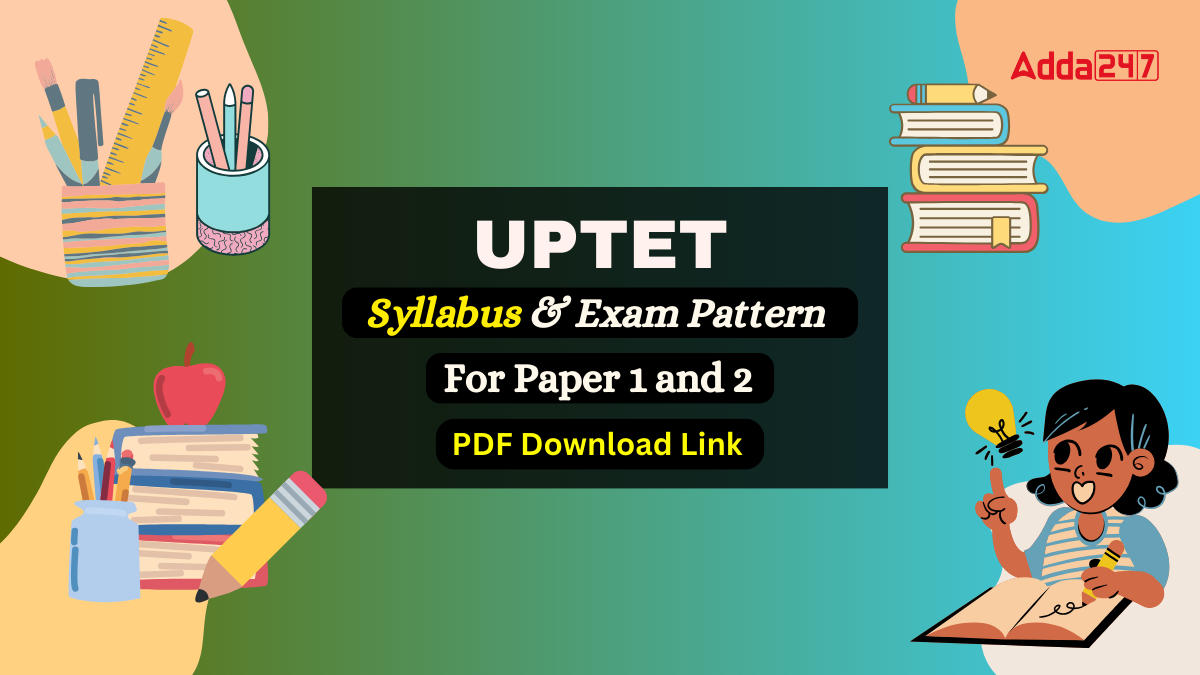
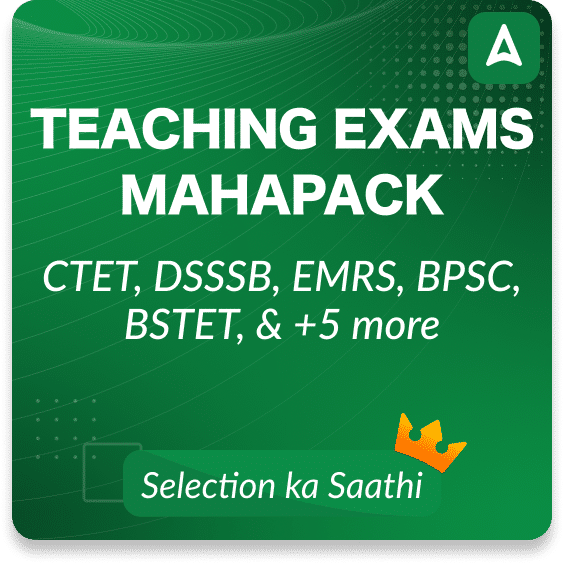
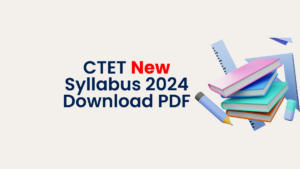 CTET Syllabus 2024 Released (Official) F...
CTET Syllabus 2024 Released (Official) F...
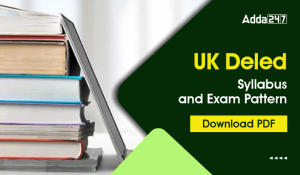 UK Deled Syllabus 2024, Download New Exa...
UK Deled Syllabus 2024, Download New Exa...
 GSET Syllabus 2024 and New Exam Pattern ...
GSET Syllabus 2024 and New Exam Pattern ...






